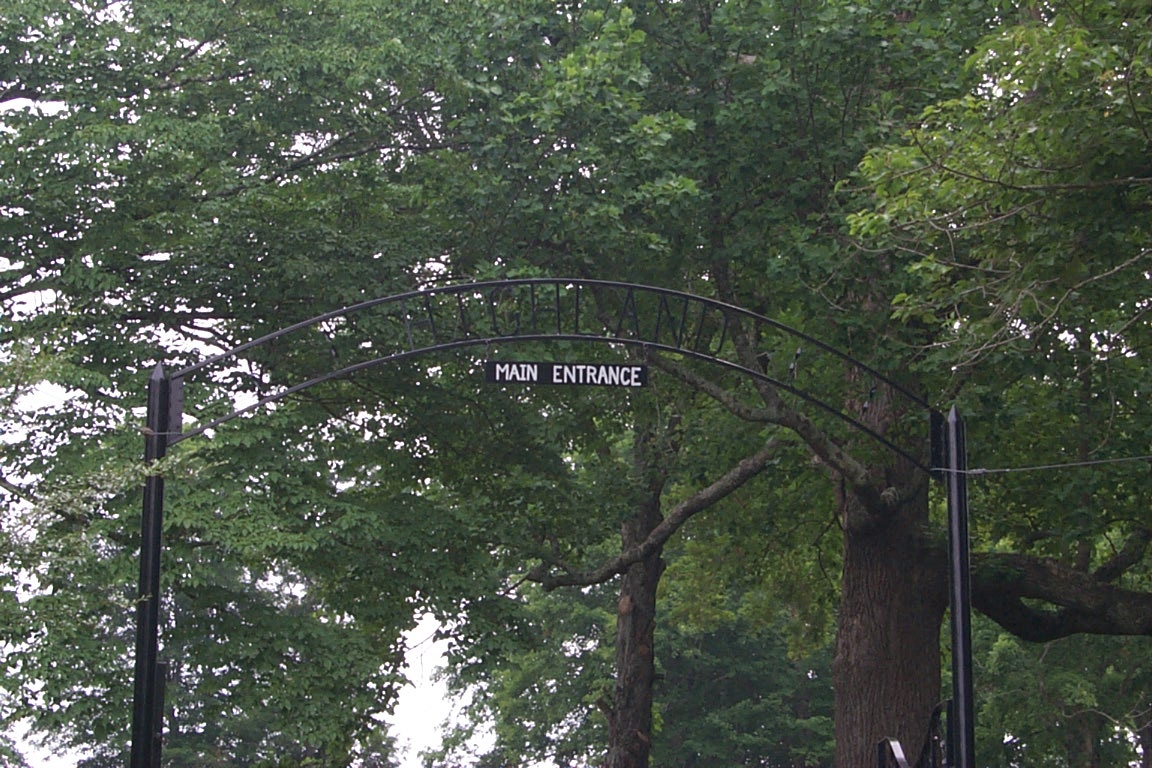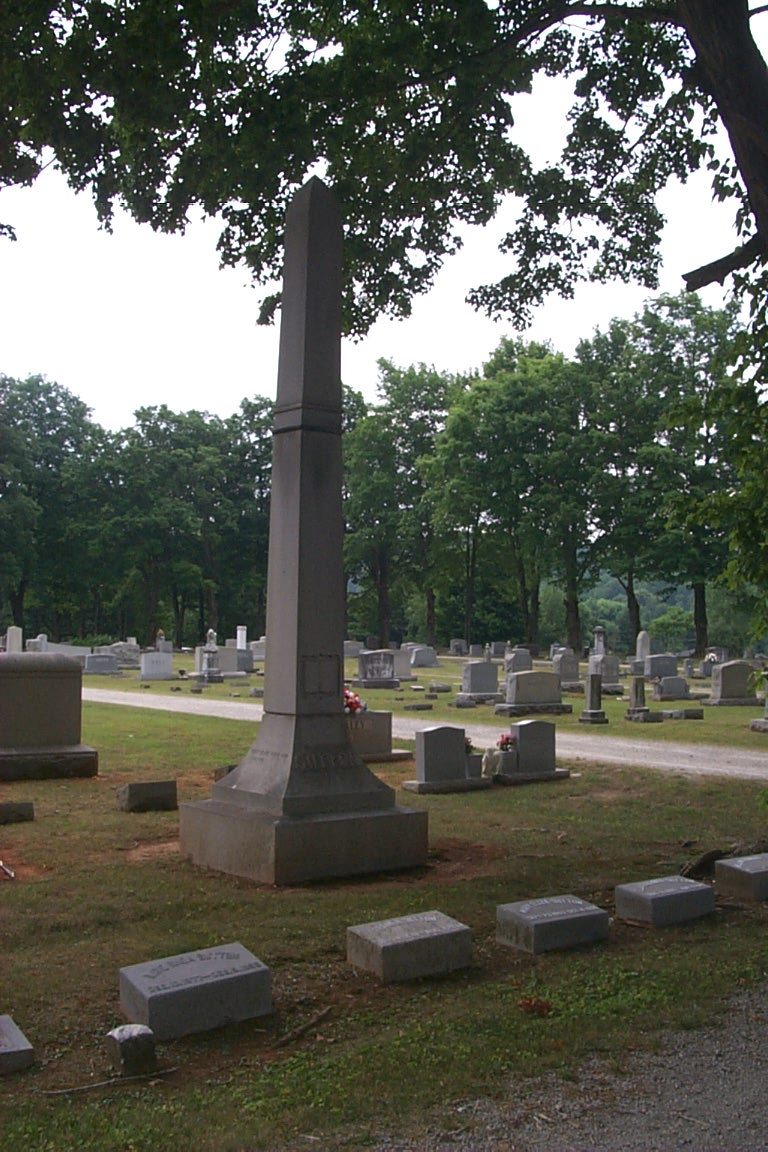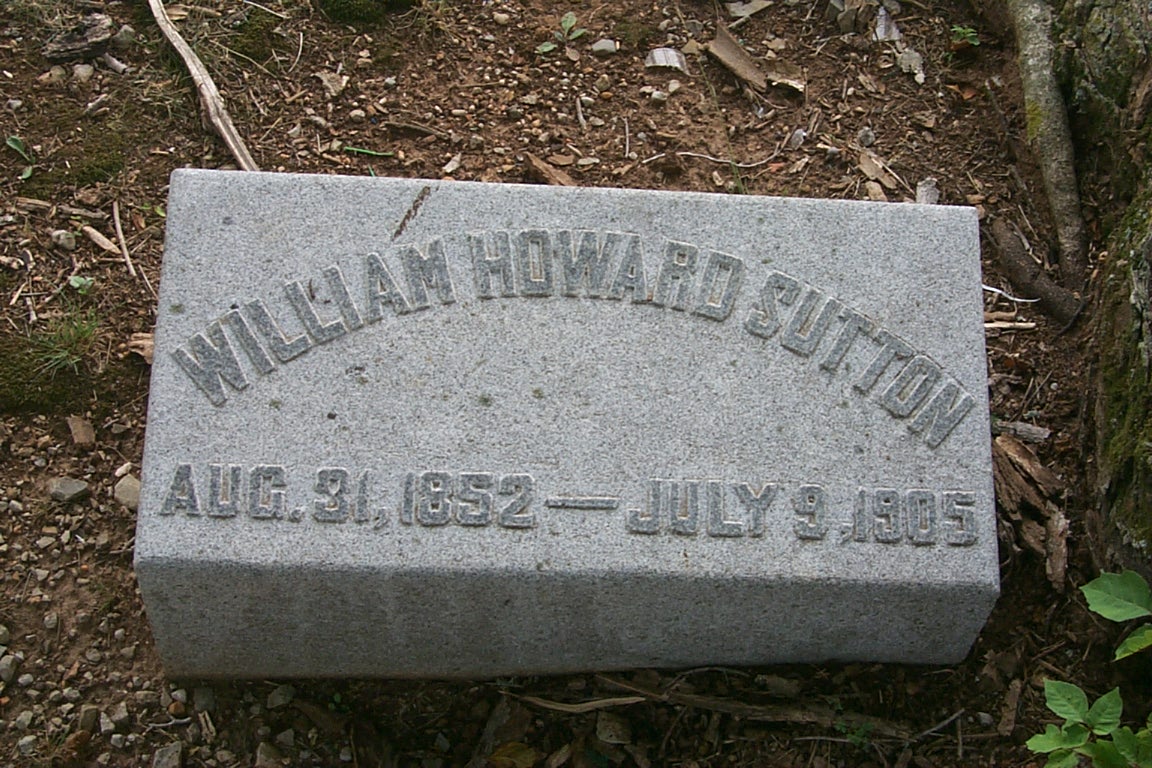William Howard Sutton
1852-1905
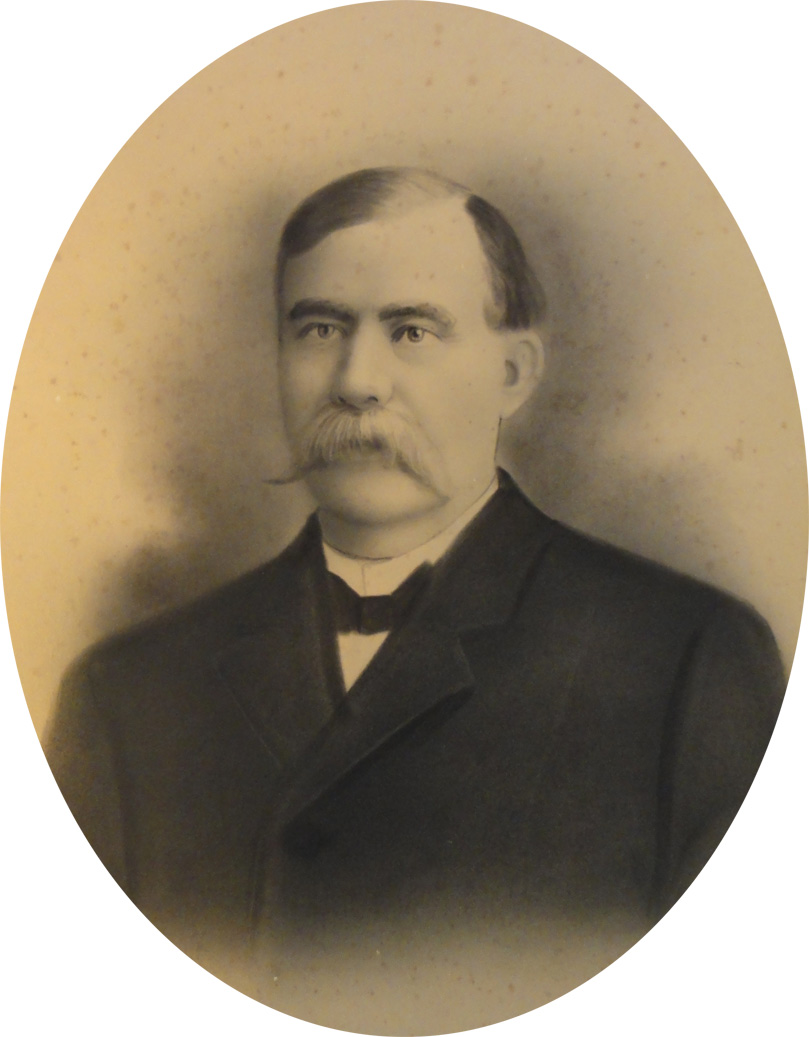
President Of Burritt College 1887-1889
Photo Of Drawing In The Old Burritt Museum
![]()
Biographical Sketch Of
The Life Of
William Howard Sutton
Some one has said that "the great man is he who does not lose his child's heart." The truth of this statement is verified in the life of William Howard Sutton; he never lost his "child's heart" in humility and simplicity of life. He was greatly loved because he loved with a great heart his fellow mortals.
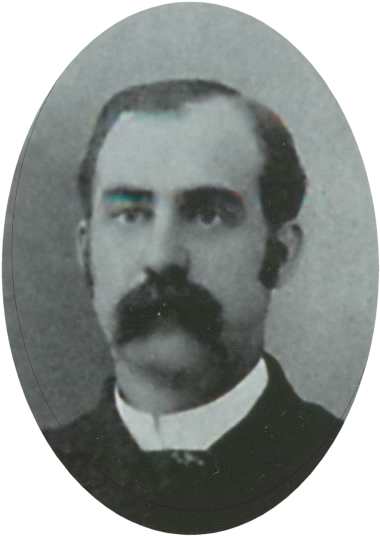 William
Howard Sutton was born near Trenton, Ga., in Dade, County, on August 21,
1852. He became a Christian while in his “teens”–in the
seventeenth year of his age. He heard the sweet story of the cross and of
God's love for man; he heard and learned the plan of salvation and
accepted it with all the fullness of his young and tender heart. In his
early life he thus consecrated himself to the Lord and lived true to that
consecration. His constant aim and steady purpose was to live the
Christian life.
William
Howard Sutton was born near Trenton, Ga., in Dade, County, on August 21,
1852. He became a Christian while in his “teens”–in the
seventeenth year of his age. He heard the sweet story of the cross and of
God's love for man; he heard and learned the plan of salvation and
accepted it with all the fullness of his young and tender heart. In his
early life he thus consecrated himself to the Lord and lived true to that
consecration. His constant aim and steady purpose was to live the
Christian life.
He began teaching school at the age of eighteen and was a success from the first. At the age of nineteen he entered school at Manchester, Tenn. At that time that prince of educators in the upland country, W. D. Carnes ("Pap" Carnes), was teaching at Manchester. Brother Sutton remained under his efficient instruction for several terms. He next took a business course in Cumberland University, Lebanon, Tenn., and afterwards taught in the business department of that school. Later the business department of Cumberland University was consolidated with that justly famous institution called “Bryant and Stratton's Business College," Nashville, Tenn. When this consolidation was perfected, Brother Sutton became a teacher in that college. He continued as a teacher in this college for some time.
On January 27, 1875, he was married to Miss Ella Faulkner, of Lebanon, Tenn., while teaching in Nashville. Soon after his marriage he was called to his old home in Georgia to take charge of a literary school. After teaching there for a while he formed a partnership with Judge Shackleford and established a business college in Chattanooga, Tenn. In 1881 Brother Sutton accepted a professorship in Burritt College, Spencer, Tenn., and taught in that college nine years. In 1887, while teaching in Burritt College, he was asked to take the place of president of the college. He did so, succeeding Prof. A. G. Thomas, who had held the presidency of the college for only one year. Brother Sutton continued as president of the college for two years, resigning in 1889, and the lamented W. N. Billingsley was elected president to fill the vacancy made by the resignation of Brother Sutton.
Brother Sutton was a successful teacher. He was efficient in the branches which he taught and was apt to teach. He had a way of winning the hearts of his students. Many of his students are still living who remember the love which he had for them and which they reciprocated. The pure life of Brother Sutton so impressed his students that they were inspired to be good. His genial life made him a pleasant companion. A teacher who is successful builds his own character into that of his students; hence Brother Sutton was a blessing to all of his students.
While
Brother Sutton was teaching in Burritt College he saw the need of
preaching the gospel to the people in that mountain country. Many of them
had heard but little preaching, and that which they had heard was so mixed
with tradition and error that they did not understand the Bible and the
way of salvation. Brother Sutton’s heart yearned for their spiritual
welfare, and he preached the word of God to them for the sake of doing
them good. He received little or nothing for his preaching among them.
He was prompted by the lofty motive of saving souls. He also preached to
the college students and the congregation in the town. He did not think at
the time that he would give all of his time and energy to preaching the
gospel, but preached from a sense of duty and a love of the salvation of
souls. As he developed as a preacher, demands for his services became so
numerous, and he felt so keenly his responsibility to preach the gospel
that he finally decided to give up his position as president of Burritt
College and devote his whole time to preaching the gospel. When freed from
the responsibilities of the college, he dedicated himself to preaching
and consecrated his life to that work, and few men ever accomplished more
in the same length of time in the counties where he labored than did W. H.
Sutton.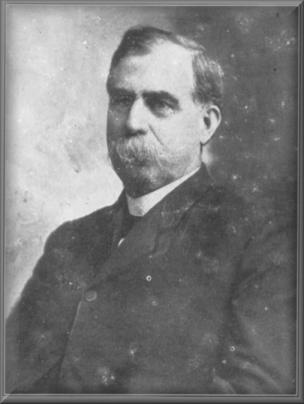
For sixteen years Brother Sutton preached and held protracted meetings without a vacation. Through the strong solicitation and earnest persuasion of the church at Sparta, Tenn., he moved from Spencer to Sparta, and the church there had fellowship with him in his preaching until his death. The church at Sparta bought a tent, and Brother Sutton went out and preached under the tent where there were no congregations or houses of worship. Brother Sutton, by the power and simplicity of the gospel, converted sinners to Christ, established new congregations, and strengthened the weak churches in that country. His labors were confined generally to White, Putnam, Warren, Van Buren, and adjacent counties. He held successful meetings in Nashville, Chattanooga, Murfreesboro, Lebanon, Fayetteville, and many other towns. Frequently he was called to other States, but he preferred, as he said, to preach in the destitute fields where there was greater need.
Brother Sutton was educated and refined. He loved the truth of God and loved to preach it. He preached acceptably to the most intelligent and refined congregations; he also preached to the less cultured with that simplicity which enabled them to understand and accept the terms of salvation. His delivery was pleasant, his appearance in the pulpit attractive, his bearing dignified, and his influence as an exhorter unexcelled. Out of the pulpit be was a kind, gentle, and lovable man, and he had friends because he showed himself friendly. He was prudent in his association with others and considerate of their happiness. He was courageous and not afraid to speak the truth with firmness. He always preached the gospel in a clear and forceful manner. His arguments were logical and convincing, and his exhortations and persuasions were almost irresistible. His message came from his heart and reached the hearts of his hearers. He had few equals in the pulpit. He was successful in converting sinners and in building up the church. He could console and counsel, encourage and reprove, instruct and warn, with humility and love, so that all who came under his influence were blessed.
All who knew Brother Sutton testified that he was a good man. The lamented E. A. Elam said: " Some preachers are noted for their eloquence; some, for their logic; some, for their being debaters; and some, for their eccentricity; but I would rather live, as Brother Sutton lived, a power for good, noted for righteousness and godliness –genuine goodness– than for all other things combined. Without genuine goodness, all else amounts to nothing."
Brother Sutton was in a meeting at Algood, Tenn., in 1905. He had been preaching there day and night for one week. Soon after nine o'clock on the second morning of the second week of the meeting, July 9, 1905, he was suddenly stricken and died immediately. His body was taken to Sparta and laid to rest there. A large multitude assembled to pay tribute to the memory of this great man of God. Every one who knew him called him "Brother Sutton." He had a kind word for everybody and his friends were numbered by his acquaintances. For the length of time that he lived, labored, and loved, possibly no other man even did more good than did Brother Sutton. Many who were blessed by this good man are still living and cherish sacred memories of him.
—From Biographical Sketches Of Gospel Preachers, H. Leo Boles, Gospel Advocate Company, Nashville, Tennessee, 1932, pages 403-407
![]()
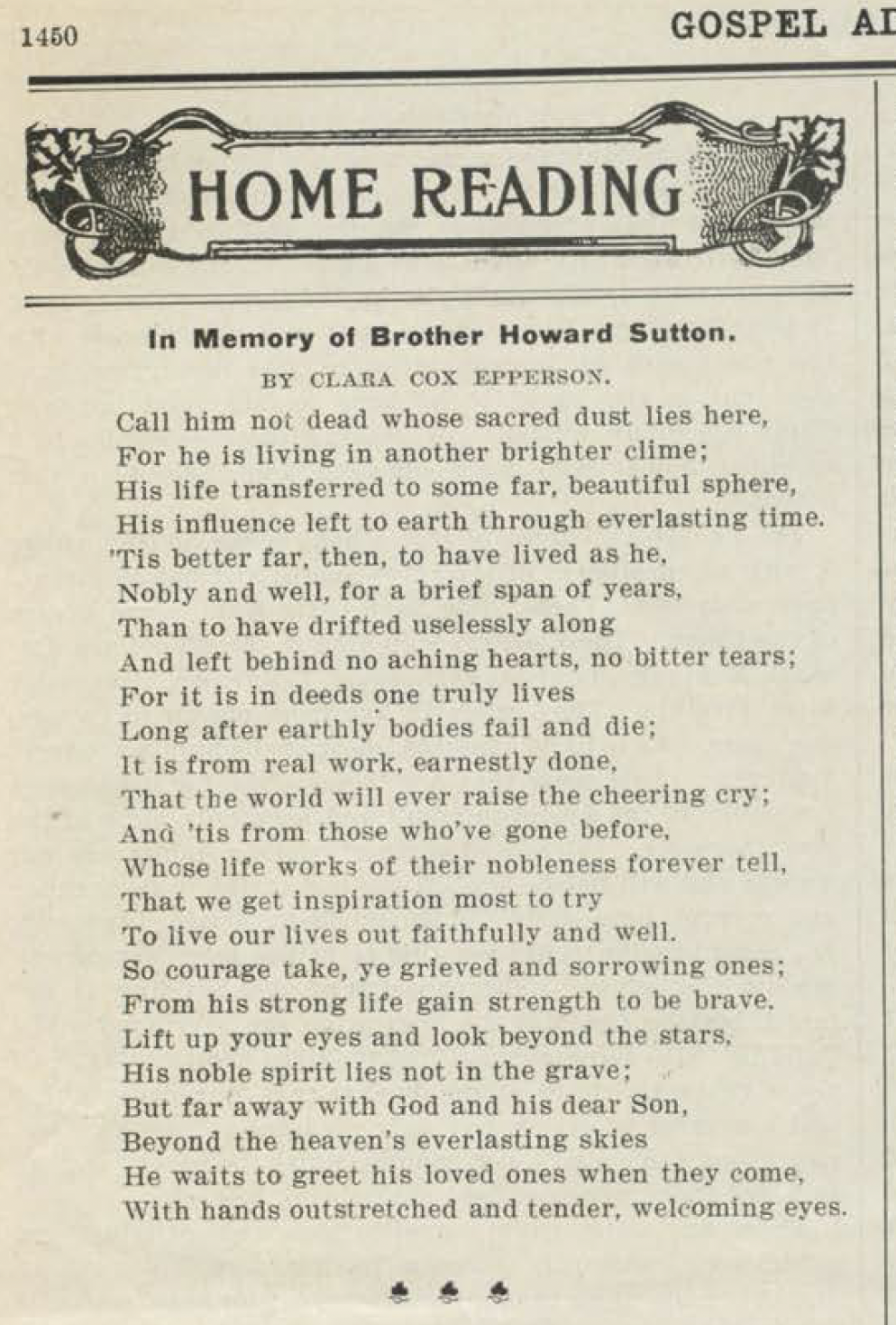
Gospel Advocate, November 18, 1909, page 1450
![]()
Directions To The Grave Of W.H. Sutton
William Howard Sutton is buried in Highland Cemetery in Sparta, Tennessee. I visited the cemetery in June, 2002. In Sparta, from the west travelling east on Hwy. 70, (E. Bockman Way) pass the White County Courthouse on the right. Go another mile and turn right on S. Highland Dr. When we were there the Sparta Police Station was on this corner. Follow S. Highland Dr. through to the end, (3 or 4 blocks). You will enter the cemetery, and going up a hill you will take your first right. As you travel this direction begin looking to your left for the tallest monument in the cemetery. The tall monument in the middle of the cemetery is the Sutton monument.
GPS: 35.918654,-85.461419
View Larger Map
![]()
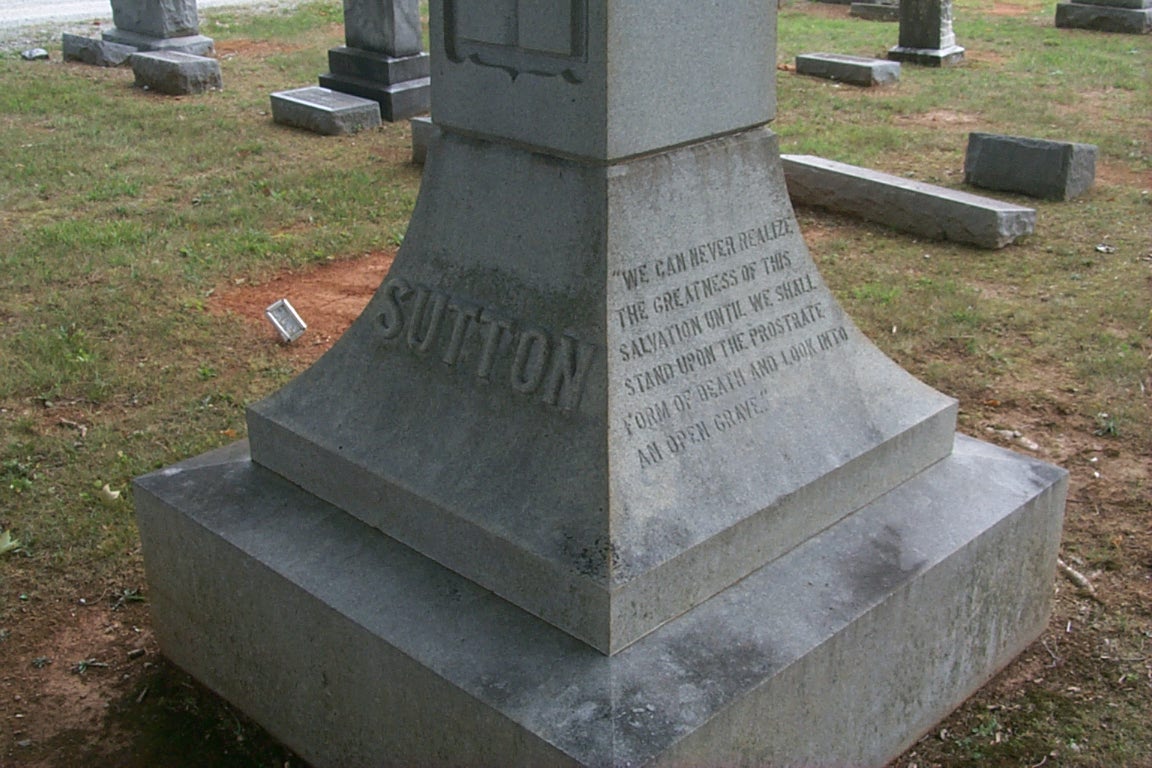
We Can Never Realize
The Greatness Of This
Salvation Until We Shall
Stand Upon The Prostrate
Form Of Death And Look Into
An Open Grave
{Side Inscription}
*Erected
By Those Who Loved Him
{Far Side Inscription}
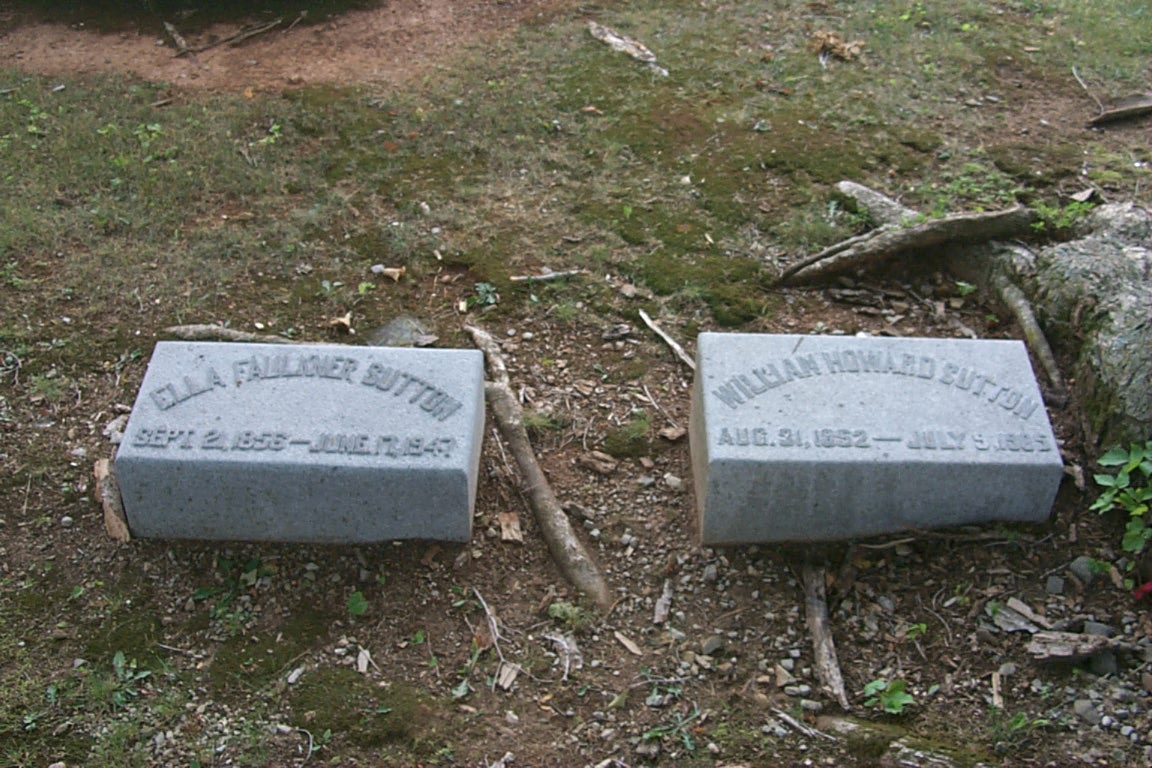
Ella
Faulkner Sutton
September 2, 1856 - June 17, 1947
William
Howard Sutton
August 31, 1852 - July 9, 1905
![]()
*Backstory On Howard Sutton's Beautiful Monument
-1909
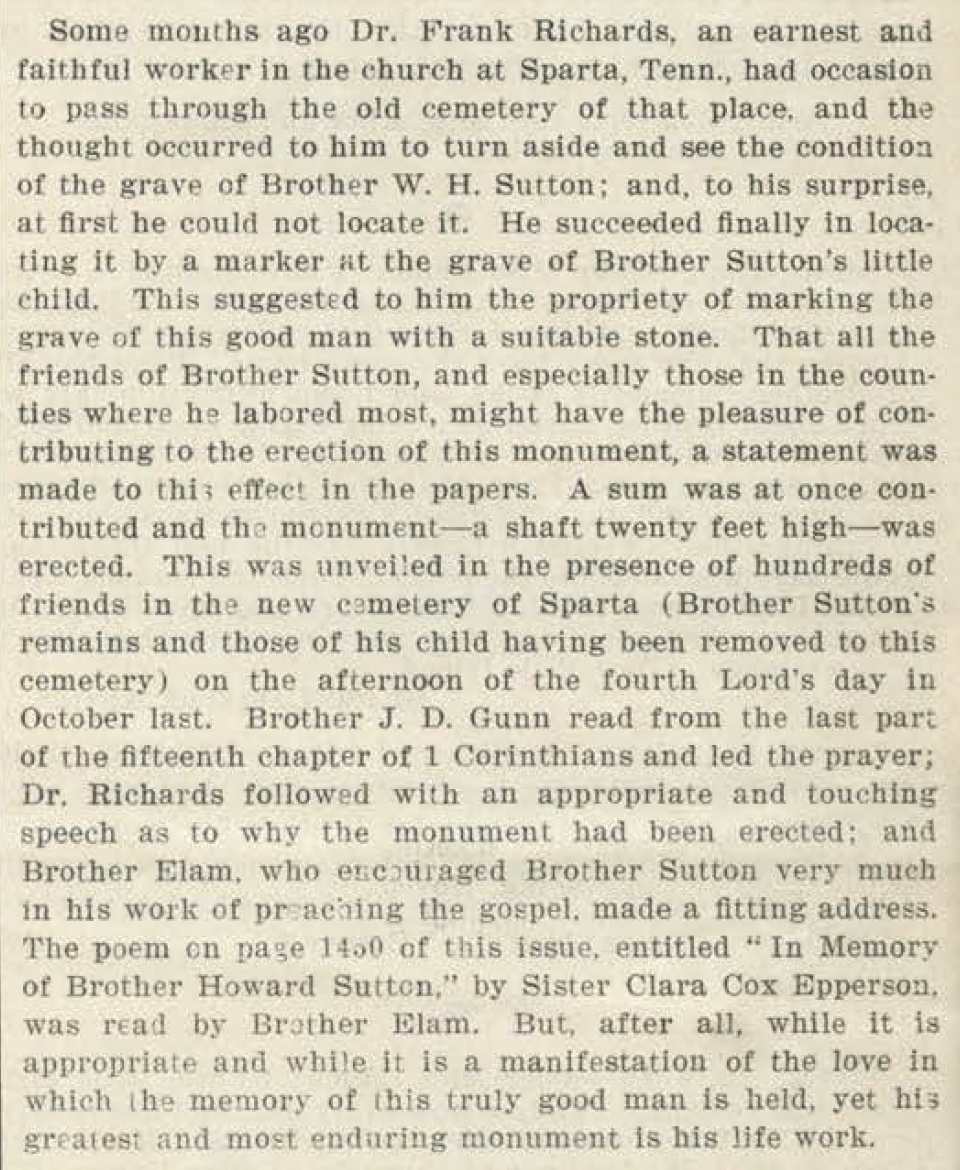
Gospel Advocate, November 18, 1909, page 1457
![]()
